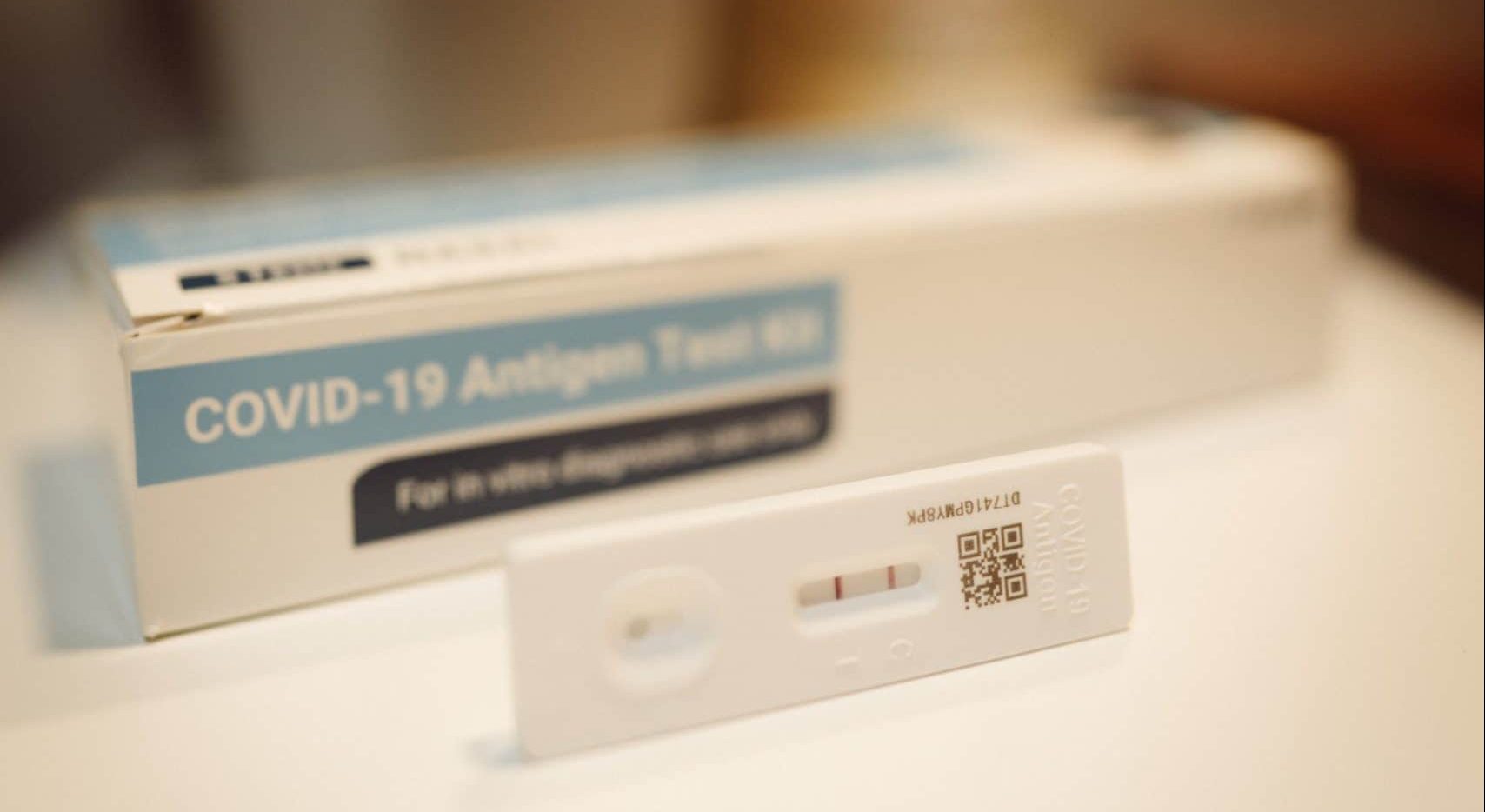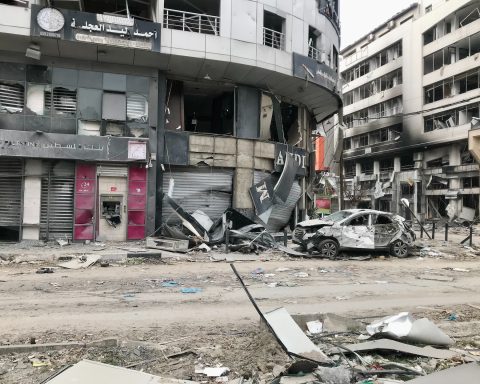David Nelson is a Research Fellow in Rural Health & Care within the Lincoln International Institute for Rural Health (LIIRH) at the University of Lincoln.
Simon Lowe is a GP and the Clinical Director for the First Coastal Primary Care Network (PCN) on the East Coast of Lincolnshire.
Kim Barr a Registered General Nurse (RGN) an Older Persons Fellow at Kings College, London and the Neighbourhood Lead for Skegness and Coastal on the East Coast of Lincolnshire.
Joanna Blackwell is a Research Associate within the School of Health and Social Care at the University of Lincoln.
Mark Gussy is a Global Professor in Rural Health & Social Care and the Deputy Director at the Lincoln International Institute for Rural Health (LIIRH), University of Lincoln.
‘Deep End’ general practices serve communities in the most socioeconomically disadvantaged areas.1 The analogy of the deep end of the swimming pool to describe how a one size fits all funding model for NHS GP practices regardless of area-based differences in patient needs leaves health professionals in high-deprivation places treading water to stay afloat.2 In less challenging places GPs are still busy but have more time and less complex patient profiles and so can stand more comfortably at the shallow end of the pool.3
Whilst coastal areas such as Lincolnshire’s East Coast used to be desirable and economically thriving holiday destinations they are now among the most deprived communities in the UK.4
On the 4th November 2021 the First Coastal Primary Care Network (FCPCN) hosted an event at a community venue in Skegness, Lincolnshire. This was attended by staff (GPs, nursing and allied health) from the three GP Practices within the PCN as well as representation from other healthcare organisations working across the county. A team of researchers from the Lincoln International Institute for Rural Health (LIIRH) at the University of Lincoln attended to observe and record the group discussion around the FCPCN Deep End initiative. This study was approved by a University of Lincoln Research Ethics Committee [Ref: 2021_7143]. This short article intends to inform readers as well as providing a record of the day’s events.
An introduction to the Deep End movement and description of the processes and outcomes from the perspective of the Deep End Yorkshire and Humber group was given. The morning was then structured into a broad discussion around the challenges that health professionals working within the FCPCN face with a focus on inequities and the experiences of the healthcare workforce. Participants formed small groups and were asked to respond to three broad questions and then reported back to the main group. Firstly, they were encouraged to identify specific challenges they faced and to articulate how these impacted both their ability to provide the level of care required and the impact of this on patient outcomes. Next the groups were asked to describe what they would ideally like the FCPCN to look like. Lastly thinking about the distance between where they are now and where they would like to be the participants identified the things that would need to be to move them closer to the latter. Groups were asked to feedback the most pressing concerns that emerged from their discussions and to identify priority areas with regard to question three.
Below is a summary of these salient ideas provided in relation to the questions that were asked. Our analysis indicated that there seemed to be three broad areas that occurred across the feedback that was provided on each of the questions: (1) communities (2) staff (3) systems and structures. Participants were offered the opportunity to comment on this summary prior to publication to ensure that this was a good representation of the feedback provided on the day.
What are the specific issues that need attending to within the First Coastal PCN?
FCPCN has high intensity service users with poor educational attainment. These primarily tend to be those who are elderly, frail and have multimorbidity. Patients can be lonely and suffer from social isolation meaning that they prefer face-to-face appointments. Access to digital services is also an issue where patients have limited access to technology. Consequently, both health and digital health literacy is low.
Recruitment and staff retention within the PCN was an important challenged raised in all groups. Ironically the things that make workplaces more supportive such as training and personal development were seen as threats – there was a fear that upskilling staff might mean that they move on to employment elsewhere. At the same time, morale is low amongst existing staff who reported a lack of training, professional isolation, and feelings of burn-out because of constant ‘firefighting’. There was an issue with the preparedness and resilience of health professionals to work within the PCN.
It was felt that there was a disconnect between primary and secondary care with lack of important communication across these sectors.
It was felt that there was a disconnect between primary and secondary care with lack of important communication across these sectors. Participants reported ‘working in silos’ which reduced the efficient use of already limited resources . There needs to be appreciation for the wider determinants of health and wellbeing that extend to the community and social care and not just health. The rural geography of Lincolnshire with poor transport links on the East Coast make access to care a challenge and increase the likelihood of non-attendance.
What would you like the First Coastal PCN to look like?
Participants saw successful health and social care as a partnership between professionals and service users. There was a perceived need to provide support to upskill the community and increase educational attainment and health literacy. This would build patient resilience and improve patient expectations to ease the burden on staff and resources within the PCN. Efforts should particularly be made to work with younger members of the community in terms of upskilling and establishing better self-care and resilience.
There was strong collective view that truly protected time for staff training, education and development was required as well as a greater focus on staff wellbeing and support. Staff would like to feel valued and appreciated and to have opportunities to progress their careers within the PCN. There was also views by some of the participants that a better sense of loyalty within teams and to the community/area would strengthen the resilience of the network and enhance staff retention and satisfaction.
In an ideal FCPCN there would be seamless integration of services and the appropriate sharing/transfer of information across different services.
In an ideal FCPCN there would be seamless integration of services and the appropriate sharing/transfer of information across different services. The group reported that they would like to see a simplified and shared process to facilitate the movement of patient records more easily throughout the system. Patients knowing that staff were communicating effectively with each other to support their care would reduce beliefs that services were not joined up and that this compromised their care. The idea of a metaphorical ‘health bus’ was put forward as a potential solution for how a multi-disciplinary team could work together to deliver care to the patient all in one place. This would reduce staff burnout as well as easing overall workforce pressures and administrative duties.
How do we bridge the gap between the two?
There was a strong belief that efforts should be made to better consult and genuinely engage with the coastal community as a whole as there is a tendency to rely on existing patient and public groups that are well established and represented by a specific subset of the population. There is a need to empower communities and to promote personalisation of care. Improving resilience within the patient population was also identified as a priority. The FCPCN should work with a ‘solution-focused’ as opposed to a ‘problem-focused’ model.
Issues around recruitment, flexible working, upskilling existing workforce, research opportunities, improved staff wellbeing and support were all identified as priority areas. Renumeration and incentive schemes to attract people to the area were suggested although it was noted that a careful examination of the evidence for the most effective ways to do this would be required. Recruitment efforts should be targeted at specific groups whom the FCPCN might appeal to rather than a ‘take anyone who applies’ approach. Particular attention should be paid to the training and support that new clinical staff receive. Staff within the PCN would like to have the reputation for being a challenging environment where they would use all of their skills and work hard but be well looked after and rewarded.
There needs to be considerable and targeted investment to improve the infrastructure within the local area. Groups also reported the need to ‘shout louder!’ for their problems and needs to be acknowledged by the wider system but this should be matched by a ‘can do’ attitude that responds with energy to new resources made available. Services should be joined up to improve connectivity and a support robust triage system to ensure that available resources are being used optimally.
Conclusion
The first group meeting and collective Deep End conversation of the FCPCN generated significant positive energy. There was benefit from people (who only communicate remotely and on behalf of provider organisations) meeting personally for the first time. The opportunity to discuss broader system level challenges and opportunities rather than focus on segments of quality or performance data was well revived. A real strength of the inaugural FCPCN Deep End conversation was the inclusion and participation of the broad health and social care groups in addition to GPs.
References
1. Walton L, Ratcliffe T, Jackson BE, et al. Mining for Deep End GPs: a group forged with steel in Yorkshire and Humber. British Journal of General Practice 2017;67(654):36. doi: 10.3399/bjgp17X688765
2. Steven K, Jackson C. GPs at the Deep End. British Journal of General Practice 2011;61(585):293. doi: 10.3399/bjgp11X567216
3. Watt G, On behalf of the Deep End Steering G. GPs at the Deep End. British Journal of General Practice 2011;61(582):66. doi: https://doi.org/10.3399/bjgp11X549090
4. Bird W. Improving health in coastal communities. BMJ 2021;374:n2214. doi: 10.1136/bmj.n2214
Featured image: by Krystian Tambur on Unsplash








